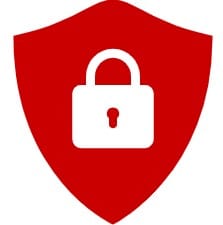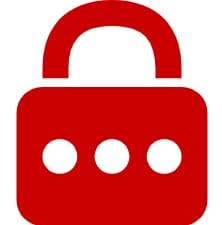Recently, there has been a new trending topic in the cybersecurity industry. Coronavirus. Cybercriminals are preying on the fears of individuals around the world as coverage of the coronavirus pandemic increases again.
Scammers are exploiting the opportunity to steal medical, personal, and financial information for those simply looking for knowledge, protection, and treatment for the viral infection.
Why are scammers using the coronavirus outbreak to take advantage of people? The answer: It’s easy. People are looking for updates on the pandemic: How their vacations will be affected, how shopping trips will be affected, what items may be out of stock or in low supply, restaurant availability, etc. With the new school year upon us, parents are searching for guidance and educational resources, and ways to support their children. Employees who were affected by the pandemic may be looking for work online, or searching for resources for help working remotely.
The scammers are posting fake job listings, selling fake/stolen test kits, questionable protective devices and fake cures at high prices. They are sending text messages saying you’re required to get tested/isolate/schedule testing with a link to click to access a fake schedule. They are emailing fake test results, vaccine information and false outbreak information for your city in the hopes that you will click on one of the links they’ve sent. These emails look official, they use the World Health Organization logo and appear official to the unsuspecting public. There are fake COVID-19 exposure text messages giving a link to click for “more info”. There is a long list of the way scammers are using this pandemic to gain access to your personal and financial information.
Unfortunately, it’s not only the pandemic that scammers are using to gain your personal information. They will use any subject that is in the news, everything from Unemployment news to weather related news. Whatever the topic is that you may decide to google more information about, there will be scammers trying to trick you into giving personal information.
A few general tips to help you protect yourself:
ALWAYS look at the “From:” address on emails. It might say From: World Health Organization, but the email address will most likely be @gmail or @yahoo or some other free email platform that is hard to trace.
DO NOT give your personal information over the phone. Regarding unemployment or other business: THE IRS WILL NOT CALL OR EMAIL YOU. If they need anything from you, they will mail you a notification. If they need to speak to you, they will instruct you (via mail) to call them. It is a good idea to verify the phone number before calling.
MONITOR the websites your children visit. If they access an unsafe site while on the home wifi, they could be putting all of your devices at risk. (Child identity theft is a thing also)
DON’T download apps from 3rd party sites. Cybercriminals create “spoof” apps to trick people into downloading malware or spyware.
USE CAUTION when connecting to public Wi-Fi networks. Cybercriminals can access your device if you connect to one of their fake networks. If you do connect to a public network, try to avoid accessing any apps or sites that contain your financial information like bank accounts or credit card information.
If you are seeking any coronavirus information, here are some trusted sites you can visit:
Centers for Disease Control and Prevention (CDC) – https://www.cdc.gov/
World Health Organization (WHO) – https://www.who.int/
USA.gov – https://www.usa.gov/coronavirus/
U.S. Food and Drug Administration (FDA) – https://www.fda.gov/home
Federal Trade Commission (FTC) – https://www.consumer.ftc.gov/
U.S. Securities and Exchange Commission (SEC) – https://www.sec.gov/investor/alerts
Internal Revenue Service (IRS) – https://www.irs.gov/
At SNC Squared, we want to make sure we’re sharing resources that will help combat cybercriminals. Take a look at our weekly IT Security tips here: https://www.sncsquared.com/it-security-tips/ .
You can also subscribe to get our weekly tips directly in your inbox here: https://www.sncsquared.com/opt-in/






























